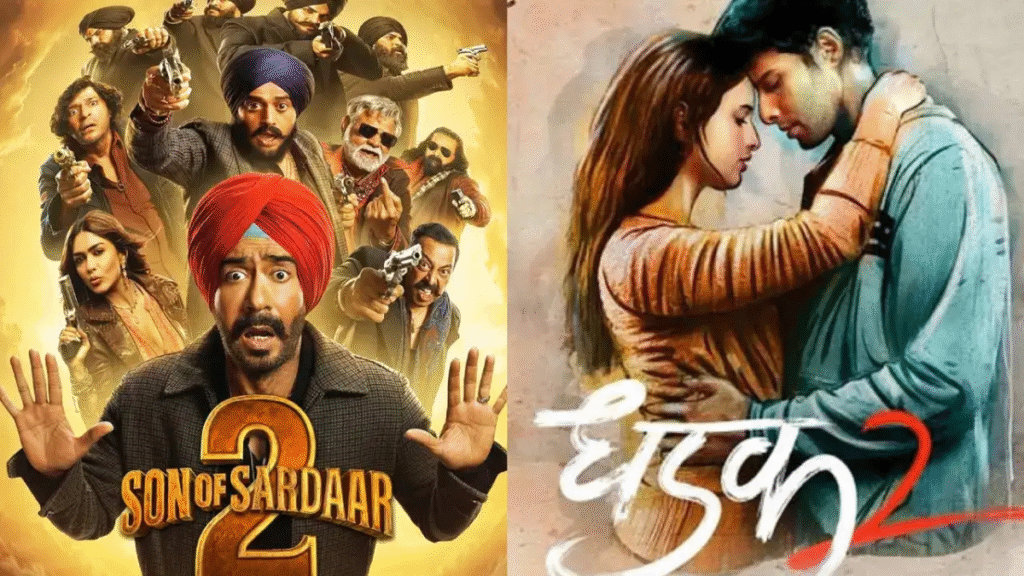Now Reading: Will Sitaare Zameen Par Help Aamir Khan Break The Curse Of The Remake?
-
01
Will Sitaare Zameen Par Help Aamir Khan Break The Curse Of The Remake?
Will Sitaare Zameen Par Help Aamir Khan Break The Curse Of The Remake?

Aamir Khan, often hailed as “Mr. Perfectionist” in Indian cinema, is set to return to the big screen with “Sitaare Zameen Par,” a film that has generated considerable buzz, not least because it’s a spiritual successor to his acclaimed “Taare Zameen Par.” However, the film also arrives amidst a swirling debate about Bollywood’s increasing reliance on remakes and Aamir Khan’s own recent track record with adapted stories. The critical question on everyone’s mind is: can “Sitaare Zameen Par” finally break the perceived “curse of the remake” for Aamir Khan?
A History of Adaptations and Mixed Fortunes
Aamir Khan’s filmography is punctuated with several films that have drawn inspiration from foreign cinema, some of which have been monumental successes. “Ghajini” (2008), a commercial juggernaut, was widely acknowledged to be inspired by Christopher Nolan’s “Memento.” Similarly, “Mann” (1999) took cues from “An Affair to Remember,” and “Dil Hai Ke Manta Nahin” (1991) echoed “It Happened One Night.” Even films like “Ghulam” (1998) and “Jo Jeeta Wohi Sikandar” (1992) have been noted for their similarities to “On the Waterfront” and “Breaking Away,” respectively. These adaptations often saw Aamir Khan, and the filmmakers, successfully “Indianize” the narratives, infusing them with local sensibilities and emotional depth that resonated with the audience.
However, the landscape has shifted. Aamir Khan’s most recent outing, “Laal Singh Chaddha” (2022), an official remake of the Hollywood classic “Forrest Gump,” proved to be a significant box office disappointment. This failure, coupled with a general sentiment among audiences against what is often perceived as unoriginal “cut-and-paste” remakes, has fueled the notion of a “remake curse” in Bollywood.
“Sitaare Zameen Par”: A New Approach to an Adapted Story
“Sitaare Zameen Par” is an official remake of the 2018 Spanish film “Campeones,” which tells the heartwarming story of a suspended basketball coach who is sentenced to community service, coaching a team of players with intellectual disabilities. Aamir Khan steps into the role of Gulshan, a frustrated basketball coach whose life takes an unexpected turn as he learns invaluable lessons from his neurodivergent team. Unlike his sensitive character in “Taare Zameen Par,” Gulshan is portrayed as rude and politically incorrect, signifying a departure from his previous role as the empathetic mentor.
Aamir Khan himself has addressed the remake debate, stating his belief that adaptations are a “new canvas” and that his creativity is not diminished by exploring existing stories. He drew parallels to the endless adaptations of Shakespeare’s works, emphasizing that the key lies in bringing one’s own lens and interpretation to the original material. He also highlighted the film’s intent to bring the crucial topic of neurodiversity into mainstream public discourse in India, echoing the social relevance of “Taare Zameen Par.”
The Challenges and Potential Redemption
Despite Aamir Khan’s staunch defense of remakes, “Sitaare Zameen Par” faces a few hurdles. The trailer has already drawn comparisons to “Campeones,” leading to “plagiarism” allegations and some online backlash. There were also reports of a brief standoff with the CBFC over requested cuts, though the film has now reportedly received clearance without changes. Furthermore, the film’s success hinges on its ability to transcend the “copycat” perception and offer a fresh, engaging narrative that resonates deeply with Indian audiences.
The film’s strength lies in its potentially inspiring and emotional storyline, focusing on themes of inclusion, empathy, and personal growth. The casting of neurodivergent children in central roles, along with the presence of seasoned actors like Genelia Deshmukh, suggests a commitment to authenticity and heartfelt storytelling. If “Sitaare Zameen Par” can deliver a genuinely moving and well-executed adaptation that touches the audience’s hearts, it could certainly pave the way for Aamir Khan to re-establish his commercial success and perhaps even shift the narrative around remakes in Indian cinema.
Ultimately, breaking the “curse of the remake” isn’t about avoiding adapted stories, but about how effectively they are told. For “Sitaare Zameen Par,” the challenge and the opportunity lie in transforming a proven concept into a distinctly Indian cinematic experience that goes beyond mere imitation and instead offers a new, meaningful perspective. The industry and audiences will be watching closely to see if Aamir Khan can once again weave his magic and prove that a well-crafted adaptation can indeed be a shining “Sitaara” (star) on the big screen.










